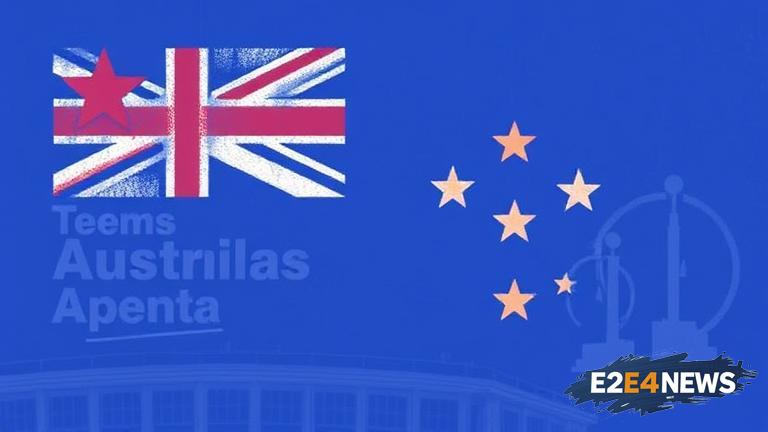The Australian government has recently proposed a ban on social media for teenagers, citing concerns about online safety and the potential impact on young people’s mental health. This move has sparked a heated debate about the role of social media in modern life and the need for regulation. Proponents of the ban argue that social media companies have failed to adequately protect their young users from harm, and that a ban is necessary to prevent further damage. On the other hand, opponents of the ban argue that it is an overreach of government power and that it will not effectively address the underlying issues. The proposal has been met with skepticism by many, who point out that social media is an integral part of modern life and that a ban would be difficult to enforce. Others have raised concerns about the potential impact on freedom of expression and the ability of young people to access information and connect with others. The Australian government has stated that the ban would be aimed at protecting young people from the potential harms of social media, including cyberbullying, online harassment, and the spread of misinformation. However, critics argue that the ban would not address the root causes of these problems and that it would be more effective to implement education and awareness programs to teach young people how to use social media safely. The proposal has also raised questions about the role of parents and caregivers in regulating their children’s social media use. Some have argued that parents should be responsible for monitoring their children’s online activity and teaching them about online safety, rather than relying on the government to impose a ban. Others have pointed out that not all parents have the resources or knowledge to effectively regulate their children’s social media use, and that a ban would be necessary to protect vulnerable young people. The debate about the social media ban has also highlighted the need for greater transparency and accountability from social media companies. Many have called for social media companies to be more open about their algorithms and data collection practices, and to take greater responsibility for protecting their users. The Australian government has stated that it will consult with social media companies, parents, and young people before making a decision about the ban. However, the proposal has already sparked a lively debate about the future of social media regulation in Australia. As the debate continues, it is clear that there are no easy answers to the complex issues surrounding social media use and online safety. The Australian government will need to carefully consider the potential impact of a ban and weigh the competing interests of different stakeholders. Ultimately, the decision about whether to implement a social media ban for teenagers will depend on a nuanced understanding of the complex issues at play. The proposal has also raised questions about the potential impact on Australia’s economy and society. Some have argued that a ban would have significant economic implications, particularly for businesses that rely on social media for marketing and advertising. Others have pointed out that a ban would also have social implications, particularly for young people who use social media to connect with others and access information. The debate about the social media ban is likely to continue in the coming weeks and months, as the Australian government considers the proposal and consults with stakeholders. As the discussion unfolds, it is clear that the issue of social media regulation is complex and multifaceted, and that there are no easy answers. The Australian government will need to carefully consider the potential impact of a ban and weigh the competing interests of different stakeholders. The proposal has also highlighted the need for greater education and awareness about online safety and social media use. Many have called for schools and community organizations to play a greater role in teaching young people about online safety and responsible social media use. Others have pointed out that parents and caregivers also have a critical role to play in regulating their children’s social media use and teaching them about online safety. The debate about the social media ban has also raised questions about the potential impact on Australia’s international relationships. Some have argued that a ban would have significant implications for Australia’s relationships with other countries, particularly in the Asia-Pacific region. Others have pointed out that a ban would also have implications for Australia’s reputation as a leader in the digital economy. The proposal has also highlighted the need for greater cooperation and collaboration between governments, social media companies, and other stakeholders to address the complex issues surrounding social media use and online safety. As the debate continues, it is clear that the issue of social media regulation is complex and multifaceted, and that there are no easy answers. The Australian government will need to carefully consider the potential impact of a ban and weigh the competing interests of different stakeholders.
